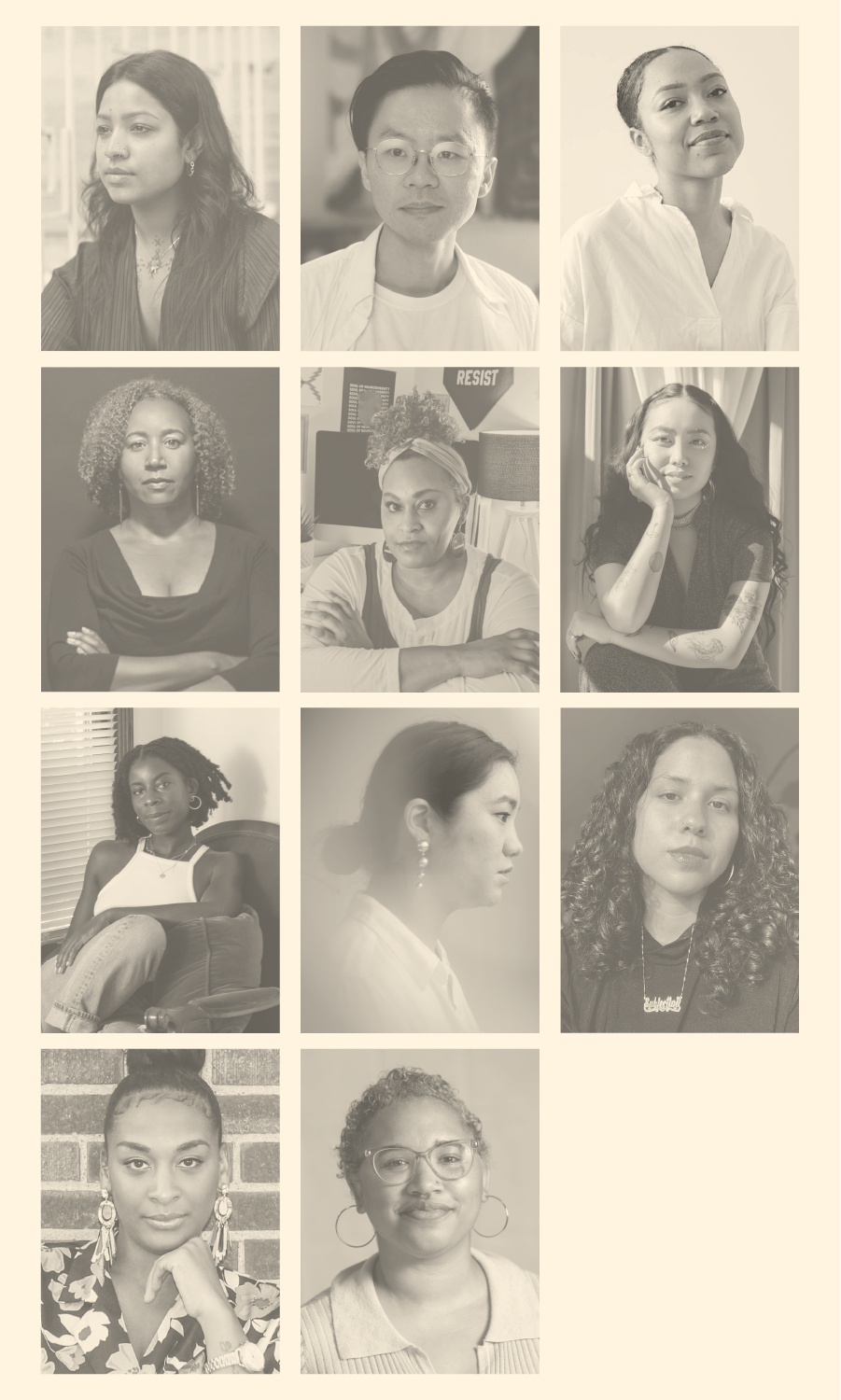Deem Forum Three: Envisioning Equity

Deem Forum Three participants from top left to right: Zenat Begum, Taeyoon Choi, Ari Melenciano, Mia Birdsong, Jen White-Johnson, Jezz Chung, Dr. Yewande Pearse, LinYee Yuan, Marcel Rosa-Salas, Gabriella Nelson, and Zoë Greggs.
Deem’s third Forum elaborated on several key topics that emerged throughout the pages of Issue 03, “Envisioning Equity,” for which we brought together a range of voices to weigh in on how the concept of equity might be thought through and applied to our lives.
A word and idea that is often misconstrued, equity, at its simplest, is about ownership of a portion of a total value. While equality implies that every individual or group receives the same portion, equity considers varying circumstances and needs, and instead allocates the portion necessary to reach an equal outcome.
As in years past, the Forum took place as three live virtual conversations, each addressing a distinct theme—interdependence, neurodiversity, and motherhood—and engaging Issue 03 contributors alongside a few special guests. These sessions were held on January 20, January 27, and February 3, 2022 at 12PM EST.
Click to watch an excerpt from Session One: Interdependence with Ari Melenciano, Taeyoon Choi, Mia Birdsong and Zenat Begum.
Our first session, themed around the concept of interdependence, considered the necessity of relationality and connectedness to the wellbeing of all life forms. The discussion was grounded in our Issue 03 conversation with Mia Birdsong and included fellow contributor Taeyoon Choi, guest Zenat Begum, and moderator Ari Melenciano.
“I want to remind us that we are nature. One of the wounds we carry from colonialism and capitalism is this idea that human beings are separate from and above nature, but we are nature...I think of this as a remembering, not a learning. It’s a remembering that interdependence is not a philosophy, right? It is a truth. It is a reality.”
— Mia Birdsong
For our second session, we examined the concept of neurodiversity and its implications in shaping the conditions for equity. This conversation included Issue 03 contributors Jezz Chung and Dr. Yewande Pearse, who served as moderator, as well as special guest Jen White-Johnson.
Click to watch an excerpt from Session Two: Neurodiversity with Dr. Yewande Pearse, Jezz Chung, and Jen White-Johnson.
“I’m shifting into this space where I really want to develop friendships, connections, and community based on our shared vision for what we want the future to look like, feel like, and be like. I’m always tuning in to see—‘Who are the people who help me feel safe and supported? Who are the people who I feel like I can stim around? Who are the people who won’t judge me when I bring my sensory toys and tools? Who are the people I can info-dump with? Who are the people I can communicate with in a way that might not be, like, socially normal or acceptable, who I can explore and experiment expressing myself in different ways around, and they’re my safe space to do that?’”
— Jezz Chung
Our third and final session explored multiple perspectives around motherhood and how design can help create more equitable life outcomes for mothers. This discussion featured Issue 03 contributors Gabriella Nelson and Zoë Greggs of Designing Motherhood, alongside guest LinYee Yuan, and was moderated by Marcel Rosa-Salas.
Click to watch an excerpt from Session Three: Motherhood with Marcel Rosa-Salas, LinYee Yuan, Gabriella Nelson, and Zoë Greggs.
“There was this very intentional push to what motherhood looked like, and what it meant for a mother to be in suburbia and have the white picket fence, and for the father to be working in the city and come back to their home on this new highway that was built for this new car—there was this whole story about a specific user when it came to how suburbia was built and glamorized. But what does it mean when that is not your story?”
—Gabriella Nelson
Many thanks once again to everyone who joined us for any or all of the sessions in our third Forum. The complete recordings, with closed captioning, are available on YouTube.


